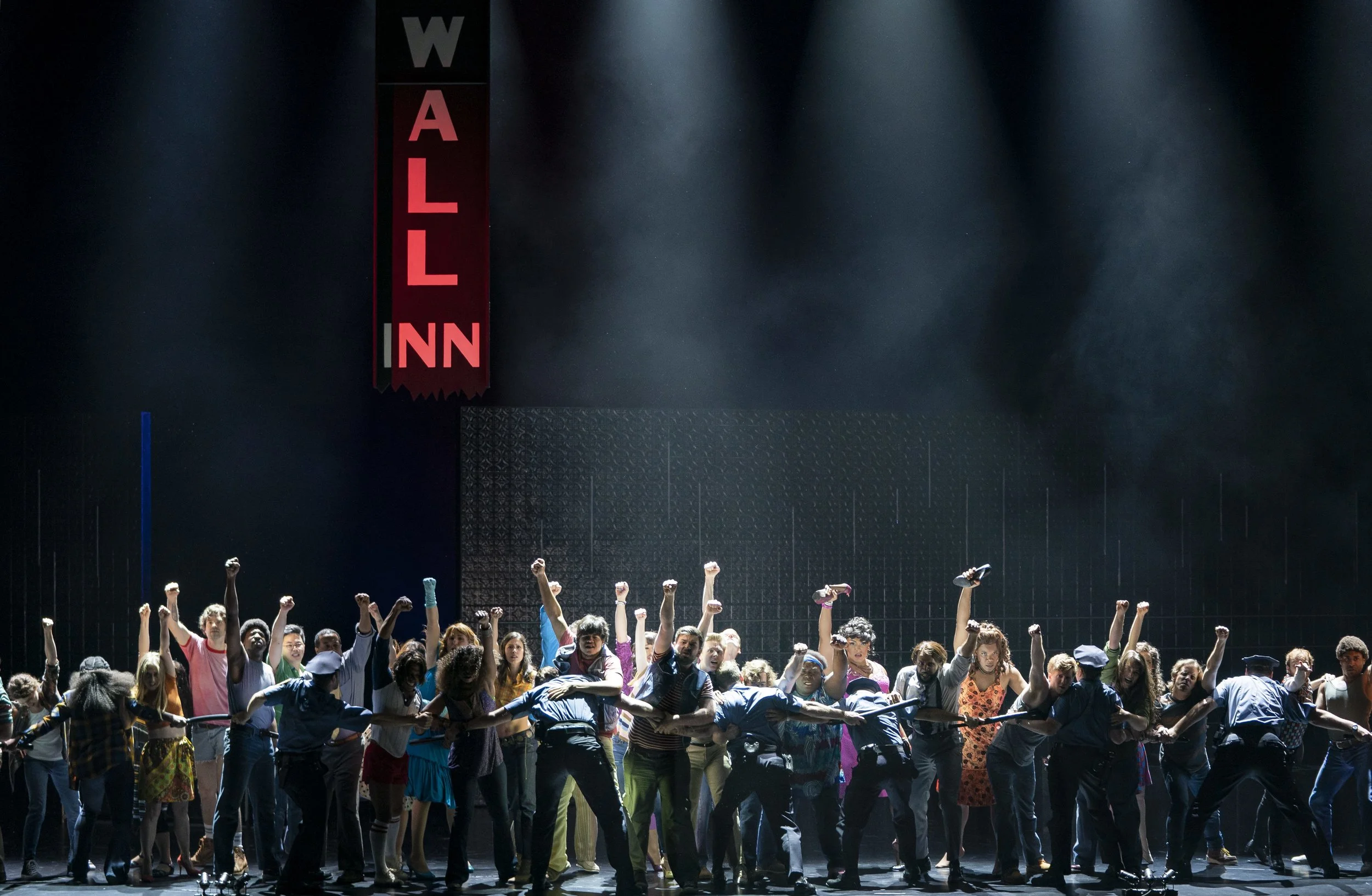REVIEW: New York City Opera Does Stonewall Proud
Above: Jordan Weatherston Pitts (center) sings the role of the drag queen, Renata, with the company of New York City Opera's STONEWALL. Photo by Sarah Shatz.
June 23, 2019
By Brian Taylor
New York City Opera’s annual LGBTQ Pride series triumphs with the moving and invigorating world premiere production of Stonewall. Brilliant young British composer Iain Bell and prolific opera librettist and advocate for contemporary opera Mark Campbell have penned a riveting work of musical theatre depicting the historic Stonewall uprising that brought visibility to the LGBTQ rights movement 50 years ago.
Photo by Sarah Shatz.
Framing a visceral staging of the police raid and ensuing chaos with a prologue depicting the buildup to the event — stories of individuals facing oppression and aggression in their daily lives — and an epilogue examining the event’s lasting impact, the writers have cleverly solved the problem of how to dramatize the story. Part I of the piece is an extended opening sequence structurally recalling those of Sondheim (“Now / Later / Soon” from A Little Night Music, or the opening of Into the Woods) in which we meet an assortment of characters going about their day — being harassed on the subway, being fired from work, grappling with the closet — looking forward to letting their hair down in their safe place, dancing under the disco lights at the Stonewall Inn. The police, however, have issues with the mafia running the unsavory joint, and don’t have a problem inconveniencing the weird types that frequent the place — no one will care about them.
Lisa Chavez (center) and the company of New York City Opera's STONEWALL. Photo by Sarah Shatz.
Director Leonard Foglia and choreographer Richard Stafford create rich stage pictures, conjuring crowded New York spaces and bustling drama. Much transpires on the busy stage, yet the storytelling is always clear. Campbell’s text is precise and sparing, giving the performers room to create three dimensional characters, and even bit parts come to life and feel true. Stafford excels at devising movement for singers that feels natural, always in service to the story.
Best of all, Bell’s score is a winner. Picking up where Britten and Bernstein left off, Bell’s music is fresh and relatable. He understands his job — how a score can underpin a narrative through the theatrical space. His singing lines are actable. His orchestrations are colorful and economical; Carolyn Kuan leads the orchestra with verve and passion. And he can fashion a catchy dance tune, too, as in the disco tracks (with vocals recorded by Darlene Love) spinning when the festivities finally get under way on the dance floor.
The climactic confrontation is a coup de théâtre that left patrons in front of me shouting (in support of the brave character who first stands up to the violent police) and those behind me audibly sobbing. Part III wraps things up by reflecting on what transpired and what the future might hold, emphasizing that there is “much to be done.”
If you attend one Pride-themed arts event this year — as New York hosts World Pride and remembers Stonewall at 50 — make it this one. It’s refreshing to see LGBTQ characters and a wide racial representation on the operatic stage. Bell, Campbell, and their collaborators have honored the strength and courage of those who decided enough was enough, beginning the struggle for equality still unfurling today. Much to be done, indeed.
***
Two performances remaining:
Rose Theatre at Jazz at Lincoln Center







